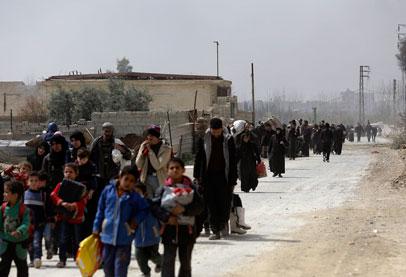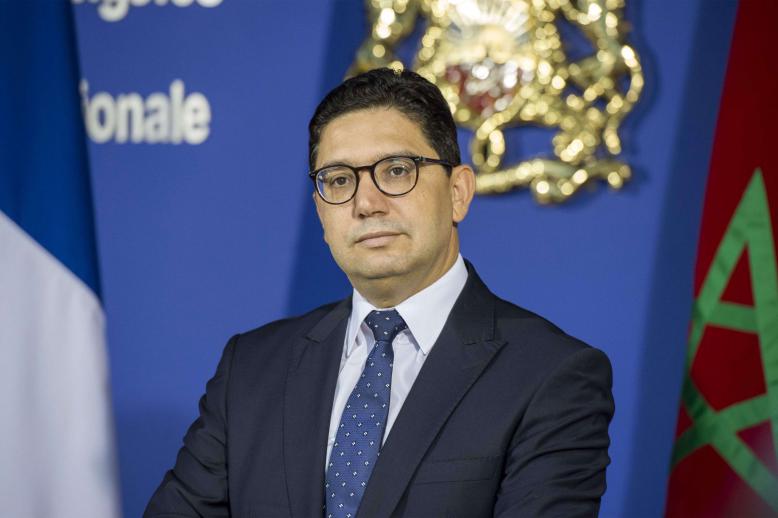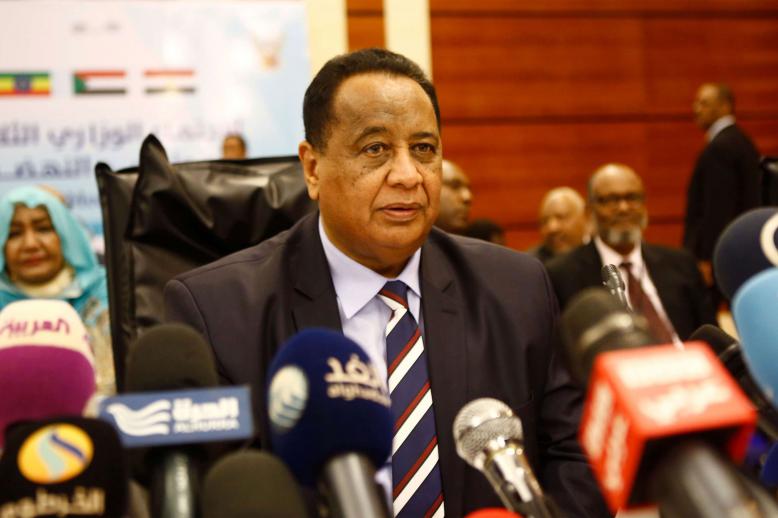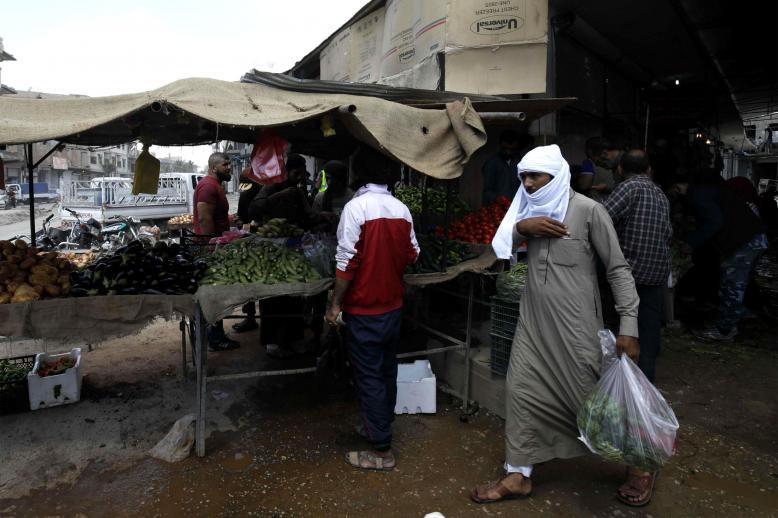Thousands flee Syria's Ghouta after month-long bombardment

ADRA - Thousands of civilians poured out of Eastern Ghouta on Thursday after a month-long bombardment brought the Syrian regime closer to recapturing the devastated rebel enclave outside Damascus.
Defying expectations and calls to step down, Syria's President Bashar al-Assad was strengthening his grip on power as the conflict entered its eighth year.
His troops advanced in a ferocious assault on Ghouta, once the opposition's main bastion on the outskirts of the capital.
A war monitor said regime forces now control 70 percent of the area, splitting the remaining rebel territory into three shrinking pockets.
After a fierce air and ground assault, regime forces on Thursday captured Hammuriyeh town, in an isolated southern part of Ghouta.
The Syrian Observatory for Human Rights, a Britain-based monitor, said rebels later launched a counter-attack and regained parts of the town, killing 14 regime fighters.
Elsewhere, however, it said the regime overran Al-Rihan town in an assault led by Russian officers and advisers.
The regime's advance into Hammuriyeh had punched a corridor through the town into government-controlled territory.
Streams of women and children escaped through that corridor on Thursday, carrying plastic bags stuffed with clothes and pushing strollers piled high with suitcases and rugs.
They reached a regime checkpoint in Adra district, where ambulances and large green buses waited to take them to temporary shelters.
- 'Largest displacement' -
The Observatory said nearly 20,000 people fled the enclave in 24 hours before the flow stopped on Thursday evening.
It called the exodus "the largest displacement since the beginning of the assault on Ghouta."
The United Nations said it was trying to determine how many people have left the enclave.
"The UN has not observed the evacuations, but is visiting collective shelters where some of the evacuees are arriving," a UN spokesman said.
Eastern Ghouta had been the main rebel bastion on the outskirts of Damascus since 2012 and came under a devastating regime siege the following year.
That left the area's roughly 400,000 residents struggling to secure food and hospitals crippled by shortages of medicine and equipment.
On Thursday, a joint convoy of food supplies for some 26,000 people entered Douma, the largest town in Ghouta and part of a separate rebel-controlled pocket.
"This is just a little of what these families need," said the International Committee of the Red Cross, which delivered the aid alongside the Syrian Arab Red Crescent and the UN.
ICRC President Peter Maurer went with the convoy, the first time he had accompanied such an operation.
Twenty-five trucks were delivering food parcels and flour bags to hunger-stricken Douma residents when mortar rounds hit nearby.
Aid workers scrambled for cover, but were able to resume deliveries shortly afterwards.
- Divide-and-conquer -
Thursday's aid operation came after two consecutive days of medical evacuations from Douma, which saw dozens of civilians bussed out for treatment in Damascus.
Ghouta was in May 2017 designated a "de-escalation zone" -- an area where violence is supposed to ease, paving the way for humanitarian assistance and a nationwide truce.
But since February 18, Russian-backed government troops have pressed a ferocious air and ground assault that has brought most of Ghouta under government control.
The Pentagon accused Russia of being "complicit" in atrocities.
US President Donald Trump's National Security Advisor, HR McMaster, said "all civilized nations must hold Iran and Russia accountable for their role in enabling atrocities and perpetuating human suffering in Syria."
The remaining rebel-held areas have been cut off from each other, in what analyst Nawar Oliver said was part of a divide-and-conquer strategy.
"The summary is that the regime cut up Ghouta into three zones, to comfortably work on securing three different agreements," said Oliver of the Turkey-based Omran Institute.
Assad is determined to retake Ghouta in order to secure the capital, which is regularly battered by rockets and mortars fired from the adjacent rebel enclave.
Dozens have been killed in rebel fire on Damascus in recent weeks, including one on Thursday, said state news agency SANA.
The assault on Ghouta has left nearly 1,250 civilians dead, around a fifth of them children.
The UN has made repeated demands for an immediate ceasefire in Eastern Ghouta, but they have gone unheeded.
For the past seven years, international efforts to bring an end to the violence raging across Syria have consistently failed.
The conflict has drawn in world powers, with Russia backing Assad and Turkey supporting an array of rebels in Syria's north against the regime, jihadists, and Kurds.
On Friday the foreign ministers of Russia, Turkey and Iran met in Kazakhstan's capital Astana for a fresh round of talks.
Previous discussions in Astana last year paved the way for the de-escalation zones, which were credited with reducing government-rebel hostilities.
But the United States has branded the zones a failure in the wake of the assault on Eastern Ghouta.
In a separate front of the complex war, Ankara and allied Syrian factions on January 20 launched a sweeping ground and air assault against the Kurdish-controlled enclave of Afrin in northwestern Syria.
The offensive has forced 30,000 civilians from Afrin city in the past 24 hours, the Observatory said.
The city is home to around 350,000 people and is defended by the Kurdish People's Protection Units (YPG).




